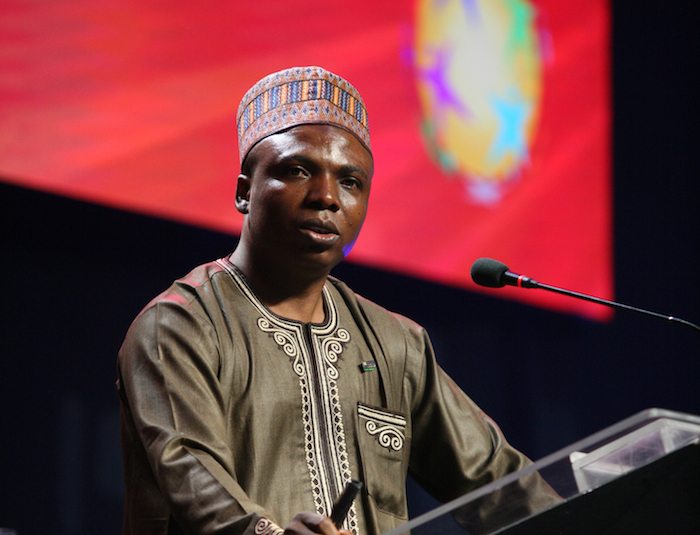Dr. Hyun Jin Preston Moon, founder of the Global Peace Foundation, addressed international peacemakers at the 2013 Global Peace Leadership Conference in Abuja. The One Family under God Campaign was initiated later that year as a grassroots effort connecting faith leaders of diverse traditions to work for peace in their communities. Four years later, the program has built a reputable track-record for mitigating religious-based conflict in several communities in Nigeria, and gained the recognition of government agencies and tribal and faith communities.
John Oko, country director of Global Peace Foundation in Nigeria has been at the forefront of these efforts.
The following conversation, originally published by the Global Peace Foundation records some of the key lessons and insights that John Oko has garnered that may help others who have interest in working with faith leaders in their own community.
Question: Why do you work with faith leaders in the One Family under God campaign in Nigeria?
I believe that faith and community leaders are the most sustainable, long-term way to establish peace in a community. Faith leaders are in it for the long haul and they have the authority and role in the community that makes them natural partners in our work of building peace and social cohesion. In a country like Nigeria where – I believe – we are one of the most spiritual or religious nations in the world – working with a network of diverse faith leaders strengthens our ability to articulate universally accepted principles as well as to find new ways to build consensus around shared values.
Even beyond this, once we engage these spiritual leaders in this message and work of building “One Family under God” in Nigeria, the faith leaders play the extremely important role of basically “translating” these ideas from the context and language of the respective faiths. This is something that no other kind of leader is able to do in a community.
Question: What has been the biggest challenge in working with faith leaders?
Generally, the biggest obstacle we’ve seen comes only when there is any sense of coming to take their followers away from them. We’ve rarely had this problem but it’s worth mentioning in that it’s important to know as, in our experience, when the faith leader starts to feel this in anyway, it closes down the avenue of working with them.
So generally, our approach and message is very simple. We encourage them to become a true Christian; live by the virtues and values of Christianity. Same with Muslims; live as Muslims are supposed to live. In doing this we actually strengthening faith commitments! Because we are basically saying “be true to your faith” and so faith leaders are very comfortable with us and our approach.
Question: What would you say is the most important thing you’ve learned through the campaign?
I would say respect. We need to be disciplined, to be careful not to undermine people in their religious faith, commitments and practices. We need to have a long-term mindset about this work and to know that what we are essentially doing is relationship-building. And so, we have to approach people with real respect. There are no shortcuts in this work.
Question: Any advice to some who would like to engage in similar work in their own country?
One of the most important things I do is to try to stay focused on the long-term goal, to never be satisfied, to always “beta-test” everything and seek out advice – even criticism – because I know they can be the key to improvement. We tried many different things and I would say that some things didn’t work out in the way that we wanted it to but we were still able to come away with lessons to continue and improve our work.
I’m also so grateful to Sheikh Maraya and Rev. Hayab as our inspired, inspiring partners and my team – our family in Nigeria. Having the right partners and team make all the difference – to try to figure out, more deeply and substantially how we might build “One Family Under God” in Nigeria. This permeates every single aspect of our work: One Family under God. It will inevitably look different in other countries because the people and the cultures are inevitably different but there are lessons we can learn from each other and I hope we in Nigeria are able to offer our lessons for the global community.

